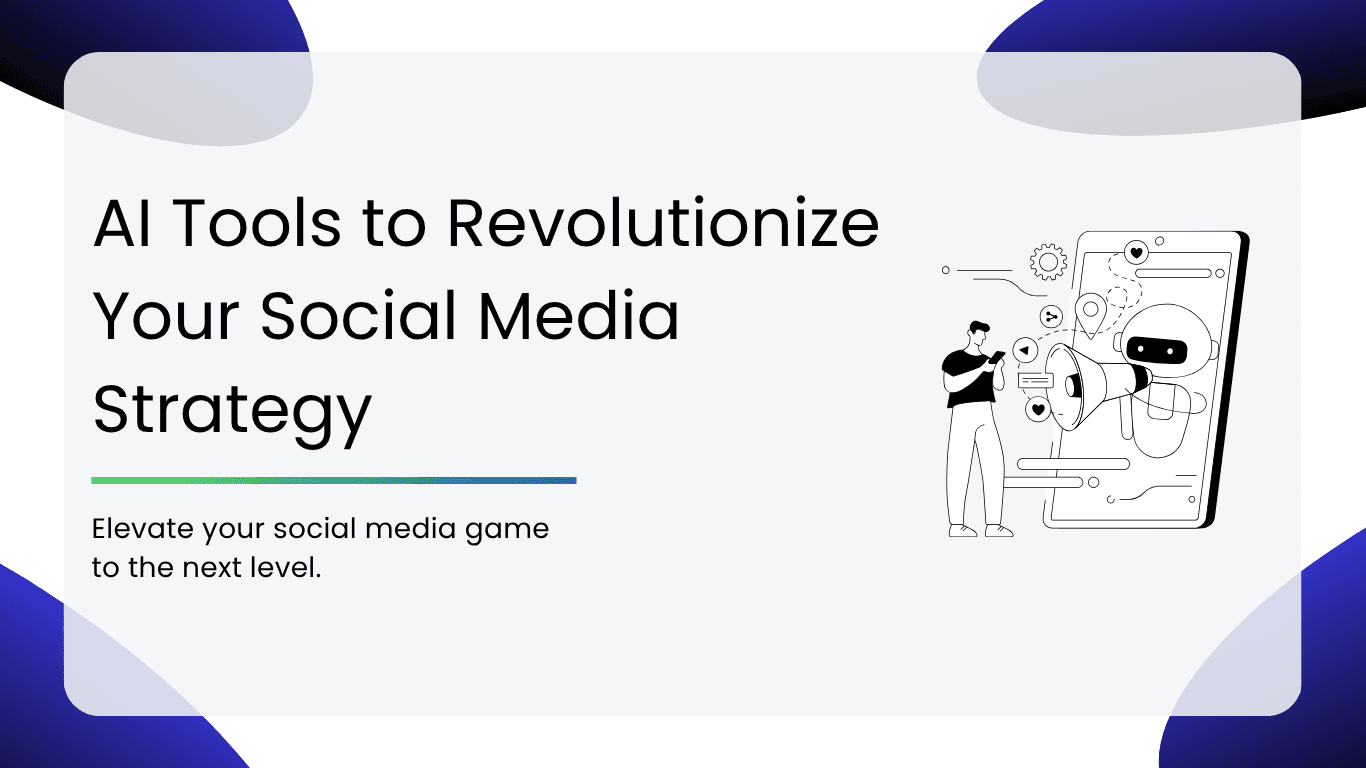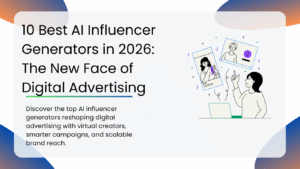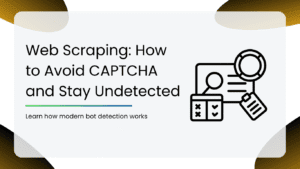In the dynamic world of social media marketing today, professionals are sometimes required to do multiple tasks, from creating content to advertising and analytics. Incorporating artificial intelligence in social media planning has been a breakthrough, with features that not only support work but also reclaim valuable time. In this definitive guide, we are going to discuss significant means through which AI can elevate your social media game to the next level.
Elevating Your Social Media Strategy: Unlocking the Power of AI in 3 Key Areas
- Creating Engaging Content with AI: Being a social media marketer, generating interesting content is always a challenge. Here is where AI steps in to ease this burden by applying natural language generation (NLG) to develop interesting posts. Being bogged down by generating content or looking to transform data-driven reports into successful social shares, AI tools can transform your thoughts into interesting stories with ease. These tools are not only time-efficient but also bring consistency and creativity to your social media posts.
- Effective Monitoring and Analysis: Social media channel management and monitoring involve a lot of work, ranging from commenting to influencer hunting and monitoring engagement metrics. AI handles data-intensive tasks, and marketers are able to make better decisions with it. There are tools such as Emplifi that employ AI to filter through millions of posts to give you useful insights that you can use to make your social media strategy. Not only is this time-saving, but your social media activities are also supported by data-driven decisions.
- Paid Social Media Advertising Optimization: AI ability reaches beyond the creation of content to the domain of paid promotion. Writing copy for ads that speaks to various groups and that optimizes for conversions and clicks is easier using AI. Predictive technology used in AI solutions can monitor users’ behavior and trends and assist you in designing ads that not only look good but are very effective at promoting your advertising outcome.
Benefits of Using AI Tools for Social Media Strategy
- Efficiency & Automation: AI software automates routine tasks like posting scheduling, content generation, and performance monitoring, saving both time and effort.
- Data-Driven Insights: These tools give detailed insights, enabling businesses to see how their audience acts, monitor engagement, and refine their methods.
- Personalized Content: AI optimizes content creation by suggesting ideas from performance history, keeping posts always new and engaging.
- Increased Engagement: The features of AI-driven chatbots, segmentation, and real-time monitoring of engagement allow brands to interact better with their audience.
- Simple Management on Multiple Platforms: Most AI software is multi-platform, allowing users to manage social media content from a single dashboard.
Challenges of Using AI Tools for Social Media Strategy
- Learning Curve: Mastering AI tools takes over a long period of time, particularly those that offer sophisticated analysis and automation functionalities.
- Expensive for Small Business: Special features and subscription packages are quite expensive, making it hard for new businesses and independent marketers to afford.
- Shortage of Human Touch: Although AI enhances personalization, it might struggle with tone, humor, or emotion when producing content.
- Data Privacy Issues: AI applications utilize user information to become more effective, and this raises privacy, security, and regulatory issues such as GDPR.
- Integration Problems: Not all marketing systems are integrable with existing AI tools, and it requires additional effort for synchronization and setup.
Comparison Table
| Tool Name | What It Does | Best For | Key Features | Potential Drawbacks |
| AI Ad Copy Generator | Creates high-impact ad copies using AI. | Advertisers, Marketers | Google Sheets™ integration, bulk copy creation | Limited to ad copywriting |
| Sprout Social | AI-powered social media management tool. | Social Media Managers | Scheduling, analytics, team collaboration | Pricing may be high for small businesses |
| Buffer | User-friendly social media scheduling tool. | Small Businesses, Creators | Intuitive UI, easy scheduling, analytics | Less detailed analytics than competitors |
| Hootsuite | Comprehensive social media management. | Large Teams, Agencies | Multi-platform support, analytics, collaboration | Steeper learning curve for beginners |
| Lately | AI-driven content creation and scheduling. | Content Marketers | AI-generated posts, automation, detailed analytics | Requires time to adapt to AI-generated suggestions |
| Audiense | AI-based audience analysis & segmentation. | Brands, Data Analysts | In-depth audience insights, real-time tracking | Higher pricing for advanced features |
| Brandwatch | AI-powered social listening & sentiment analysis. | Large Brands, Analysts | Real-time monitoring, trend tracking, analytics | Learning curve for new users |
| CoSchedule | AI-powered content marketing platform. | Marketing Teams, Bloggers | Centralized planning, collaboration tools | Can be complex for beginners |
| Flick | AI-driven Instagram growth tool. | Influencers, Marketers | Hashtag research, analytics, competitor tracking | Primarily focused on Instagram |
| SocialBee | AI-powered social media scheduling. | Social Media Managers | Audience segmentation, content categorization | Fewer automation features than competitors |
| HubSpot | AI-powered social media & marketing tool. | Businesses, Agencies | Lead management, analytics, CRM integration | Can be overwhelming for small teams |
Table Of Contents
| 1. AI Ad Copy Generator |
| 2. Sprout Social |
| 3. Buffer |
| 4. Hootsuite |
| 5. Lately |
| 6. Audiense |
| 7. Brandwatch |
| 8. CoSchedule |
| 9. Flick |
| 10. SocialBee |
| 11. HubSpot |
1. AI Ad Copy Generator
The AI Ad Copy Generator is a game-changer in advertising, utilizing advanced AI algorithms to create impactful and customized ad copies. It efficiently handles bulk operations, ensuring consistency across multiple products on both Google Ads™ and Meta Ads platforms. With an interface that’s user-friendly and easily integrates into Google Sheets™, it significantly reduces the time and effort needed for ad copy creation.
What It’s Used For: This tool streamlines the creation of personalized and effective ad copies, strengthening advertising campaign efficiency.
Pros:
- Personalized Copies: Personalizes messages to particular audiences, thereby making them of greater relevance and interest. It can easily adapt to various products and campaigns.
- Bulk Operation Efficiency: Handles large-scale ad copy generation with ease while maintaining consistency in numerous products and platforms.
- Easy-to-Use Interface: Compatible with Google Sheets™ and simple enough for non-technical users.
- Time-Saving: Automates mundane activities, significantly lessening time spent on the development of ad copy.
Cons:
- Limited customization for one-off campaigns.
- Best suited for structured ad campaigns rather than spontaneous marketing.
- May not fully capture brand tone without manual tweaking.
Review
A major lifesaver for advertisers, this tool automates ad copy creation with AI, making it simple to generate personalized ads that are high-performing. The Google Sheets™ integration is a bonus, but it’s best suited for bulk operations rather than one-off campaigns.
2. Sprout Social
Sprout Social is a social media management pioneer that incorporates AI into an entire platform. With its suite of analytics, scheduling, and collaboration capabilities, it offers marketers one location to centralize. Sprout Social is aimed at simplifying social media management, addressing the main areas of scheduling, monitoring, analytics, and collaboration. With its single-platform architecture, it optimizes operations and offers users complete analytics and reportable capabilities.
What It’s Used For: Designed to simplify the multifaceted world of social media management, Sprout Social is a one-stop solution for scheduling, monitoring, analytics, and team collaboration.
Pros:
- Unified Platform: Combines scheduling, monitoring, and analytics in one place, simplifying the whole social media management process.
- In-Depth Analytics: Provides detailed insights into performance metrics, thus; helping refine strategies for better results.
- Customizable Reporting: Allows users to create reports easily that are customizable and that align with specific business goals and KPIs.
Cons:
- Expensive for small businesses.
- Has a steep learning curve for new users.
- Limited automation for engagement and direct interactions.
Review
A solid AI-powered social media manager with top-notch analytics and scheduling. The interface is very smooth, but the pricing might not be affordable for smaller businesses but great for brands that want deep insights and streamlined collaboration.
3. Buffer
Buffer appears to be an easy-to-use social media management site with a focus on scheduling posts, tracking performance, and managing accounts. The site is designed to make social media management easy for users who are handling more than one account. Its easy-to-use interface makes scheduling posts easy, and its powerful analytics give in-depth information on performance metrics. Although its ease of use is one of its strengths, some users might find the analytics less in-depth compared to more specialized sites.
What It’s Used For: Tailored for users handling multiple accounts, Buffer simplifies social media scheduling, analytics, and collaboration.
Pros:
- Intuitive Interface: Designed for ease of use, making it easy to use for beginners and small teams.
- Easy Scheduling: Optimizes the process of planning and publishing posts across multiple social media platforms.
- Robust Analytics: Offers clear performance insights.
Cons:
- Lacks advanced analytics compared to it’s competitors.
- Limited collaboration features for team management.
- No built-in social listening tools.
Review
A simple yet effective scheduling tool with a clean and user-friendly interface. It’s a great tool for managing multiple social accounts, but its analytics aren’t as detailed as other competitors. However, it is perfect for those who prioritize ease of use.
4. Hootsuite
Hootsuite cemented its status as a top social media management tool, with scheduling, monitoring, and reporting functionality across platforms. With its emphasis on social media scheduling, monitoring, analytics, and team collaboration, Hootsuite is an umbrella solution. Its greatest strength is extensive platform integration, with team coordination made simpler through collaboration features and thorough analytics offering detailed insights into social media performance. Its processing may, however, entail a learning curve for some.
What It’s Used For: Hootsuite is instrumental in handling various aspects of social media management, including scheduling, monitoring, analytics, and team collaboration.
Pros:
- Wide Platform Integration: Supports a variety of social media platforms, making it the perfect tool for diverse strategies.
- Team Collaboration Features: Enables flawless teamwork with tools for task assignment and communication.
- Detailed Analytics: Delivers comprehensive performance data in order to help optimize social media efforts.
Cons:
- Steep learning curve, especially for beginners.
- Premium features come at a very high cost.
- Can be slow when handling multiple accounts.
Review
This tool is a powerhouse for social media management that offers scheduling, monitoring, and analytics. The platform is packed with features, but the learning curve can be steep. Its best for teams handling large-scale social media strategies.
5. Lately
Lately positions itself currently in the category of an AI-powered platform, with expertise in content creation and social media scheduling. Relying on data to predict and optimize engagement, it aims to enable companies to compose, schedule, and optimize social media content. The major strengths of Lately are AI-powered content suggestions, automation, and in-depth analysis.
What It’s Used For: Specifically useful for content creation, scheduling, and performance tracking, Lately targets businesses looking to optimize their social media content strategy.
Pros:
- AI-Driven Content Suggestions: The tool uses past performance data so as to recommend high-performing content ideas.
- Time-Saving Automation: Automates content creation and scheduling, thus; freeing up time for other tasks.
- Detailed Analytics: Provides insights into what works, which in turn helps refine future content strategies.
Cons:
- Requires time to master AI recommendations.
- Can feel overwhelming due to excessive data insights.
- Not ideal for brands that prefer manual control over content.
Review
This AI-driven platform takes the guesswork out of content creation by analyzing past performance to make future posts better. It’s a fantastic time-saver but might take some time to master it. Best for brands serious about data-driven content.
6. Audiense
Audiense is a social media intelligence platform that employs AI to interpret audience data. It enables companies to value and interact with their audience through audience analysis insight, segmentation, and suggested personalized content. Audiense’s power is in delivering in-depth audience insights, segmentation, and real-time tracking. However, the cost could be an issue, especially for small companies.
What It’s Used For: Targeting audience analysis and segmentation, Audience becomes an essential tool for businesses that are aiming to customize their content to specific audience segments.
Pros:
- In-Depth Audience Insights: Provides comprehensive understanding of the audience.
- Segmentation features: Allows for targeted content strategies.
- Real-Time Tracking: Offers insights into current audience behaviours.
Cons:
- Can be overwhelming for beginners.
- Expensive for small businesses.
- Requires integration with other tools for execution (e.g., scheduling).
Review
If audience segmentation is what your company focuses on, Audiense delivers deep insights and real-time tracking. It’s powerful for personalized marketing but may feel overwhelming for beginners. Best for businesses keen on audience-driven strategies.
7. Brandwatch
Brandwatch is a social listening and analytics tool that employs AI to track and analyze social media conversations. With features of social listening, sentiment analysis, and trend monitoring, it provides insights into what is being said online. Brandwatch’s strengths are powerful analytics, real-time tracking, and customizable dashboards.
What It’s Used For: Primarily designed for social listening, sentiment analysis, and trend tracking, Brandwatch helps businesses understand online conversations surrounding their brand.
Pros:
- Powerful Analytics: Delivers advanced data analysis to uncover trends and sentiment around your brand.
- Real-Time Monitoring: Tracks online conversations as and when they happen, providing up-to-the-minute insights.
- Customizable Dashboards: Allows the users design dashboards to focus on the metrics that matter most to them.
Cons:
- Takes time to set up and interpret data effectively.
- Full functionality can be costly.
- Data-heavy interface may feel complex for new users.
Review
Great go-to tool for social listening, sentiment analysis, and trend tracking. It’s incredibly insightful but requires some time to fully utilize. Best for brands that want to stay ahead of online conversations.
8. CoSchedule
CoSchedule is a strong content marketing platform that is designed to streamline your marketing efforts. The tool provides a centralized hub for planning, creating, and executing marketing strategies, making sure of seamless collaboration and organization.
What It’s Used For: Made for content marketers and teams, CoSchedule serves as an all-in-one solution for content planning, creation, and social media scheduling. It’s a go-to tool for managing the entire marketing workflow just in one place.
Pros:
- Centralized Hub: Combines content planning, content creation, and scheduling into one platform, centralizing all marketing activities and making them available. It prevents the use of various tools, saving time and complexity.
- Collaboration Features: Facilitates collaboration through assignment tools, approvals, and comments that enable teams to collaborate more efficiently. Ideal for formal teams with multiple stakeholders.
- Efficient Workflow: Streamlines the process of marketing from idea to execution, ensuring timely delivery of deadlines and campaigns. Ideal for teams who require improved productivity and organization.
Cons:
- May be too complex for solo marketers.
- Requires manual fine-tuning for some automation features.
- Lacks robust real-time social media monitoring.
Review
More than just a scheduler, it’s a full-fledged marketing hub that helps teams plan and execute content strategies. The collaboration features are a great plus, but it may be overkill for solo marketers but perfect for structured content teams.
9. Flick
Flick positions itself as an AI-driven tool that is designed to enhance Instagram marketing strategies. By providing hashtag recommendations, analytics, and engagement tracking, the tool aims to optimize hashtag usage in order to improve reach and engagement on Instagram.
What It’s Used For: Flick primarily focuses on hashtag optimization, analytics, and strategies to boost Instagram growth.
Pros:
- Hashtag Suggestions: Utilizes AI to recommend using hashtags that are best for your post, reaching more targeted individuals. Eliminates the uncertainty of which hashtags are best.
- Analytics: Gives you in-depth information about the performance of your hashtags so you can optimize your strategy for enhanced engagement and growth.
- Competitor Tracking: Enables you to monitor competitors’ hashtag strategies, staying ahead of the game by observing trends and possibilities for your niche. It’s perfect for staying ahead of the Instagram game.
Cons:
- Primarily focused on Instagram, limiting other platform functionality.
- Lacks features beyond hashtag optimization.
- Subscription cost may not be justifiable for casual users.
Review
A must-have tool for Instagram marketers, that provides AI-driven hashtag suggestions and analytics. The insights given by the tool are valuable, but it’s mainly focused on hashtags. Best for those looking to maximize Instagram reach.
10. SocialBee
SocialBee is a versatile social media management tool that is designed to simplify and streamline your social media strategy. Right from content scheduling to audience engagement, it offers a thorough suite of features that is aimed at optimizing your online presence.
What It’s Used For: Fitted for social media managers and marketers, SocialBee facilitates content scheduling, audience segmentation, and growth strategies. It provides a centralized platform for effective social media management.
Pros:
- Effective Scheduling: Reduces the scheduling and posting process on multiple sites, saving time with consistent delivery of content. It is most suitable for busy social media administrators.
- Audience Segmentation: Enables you to tailor content for specific segments of your audience, so your message resonates with different groups. The feature builds engagement and generates closer connections.
- Growth Strategies: Gives you the tools and insights you need to grow your audience and drive engagement, enabling you to more easily achieve your social media goals.
Cons:
- Not as analytics-heavy as competitors.
- Limited automation for detailed campaign management.
- Lacks advanced AI-driven content creation tools.
Review
It’s a smart social media manager with scheduling, segmentation, and growth-focused features. It’s versatile but not as analytics-heavy as other alternatives available in the market. Great for businesses looking for an all-in-one social tool.
11. HubSpot
HubSpot positions itself as an all-in-one marketing platform integrating AI to streamline social media marketing efforts. It offers various tools for scheduling, monitoring, analytics, and lead generation, and thus; aims to provide a comprehensive solution for businesses.
What It’s Used For: Ideal for social media scheduling, monitoring, analytics, and lead generation, HubSpot becomes a centralized platform for marketers.
Pros:
- Integrated Marketing Tools: Combines social media management with email marketing, CRM, and analytics, and provides you with a one-stop solution for it all. Great for businesses wanting a one-stop solution.
- In-Depth Analytics: Provides in-depth analysis of your social media performance, enabling you to monitor ROI and optimize your strategies. The data-driven approach enables well-informed decisions.
- Lead Management: Automates the generation and nurturing of leads by connecting social media activity to your CRM so that you can instantly convert prospects into customers. It’s ideal for sales-driven companies.
Cons:
- Premium features come at a high cost.
- Extensive toolset can be overwhelming for new users.
- Social media tools aren’t as advanced as standalone platforms like Hootsuite.
Review
A marketing giant that smoothly integrates AI into scheduling, analytics, and lead generation. It’s a powerful all-in-one platform but can sometimes feel overwhelming if you only need basic social media management. Best for businesses looking for a complete marketing solution.
Combining AI tools in your social media strategy can significantly boost efficiency, engagement, and overall performance. The 11 AI Tools to Transform Your Social Media Strategy detailed in this book have varied applications, from creating ad copy to managing social media. When selecting the most effective tools for your company, consider your specific needs, budget, and learning curve of each tool. By leveraging AI power, you can stay ahead of the constantly changing social media game and gain significant results for your brand.
As you embark on your social media journey, consider exploring other specialized AI tools on which you can read more by exploring our other blogs:
- Top 15 AI Logo Design Tools
- Top 14 AI Video Generator Tools
- 15 Social Media AI Tools You’ll Need in 2023
FAQs
Yes! Audience and Brandwatch are powerful tools for understanding audience behaviour, segmenting users, and tracking social conversations in real-time.
Some, like Buffer and SocialBee, have very easy-to-use interfaces that are easy for beginners. Others, like Hootsuite and Brandwatch, may have a learning curve due to their advanced features.
No, AI tools can only assist with automation and insights, but human creativity and strategy are still very essential for effective social media marketing.
AI tools analyze trends, suggest content ideas, optimize posting times, and track audience responses to improve engagement and reach.
Disclosure – This post contains some sponsored links and some affiliate links and we may earn a commission when you click on the links, at no additional cost to you.





